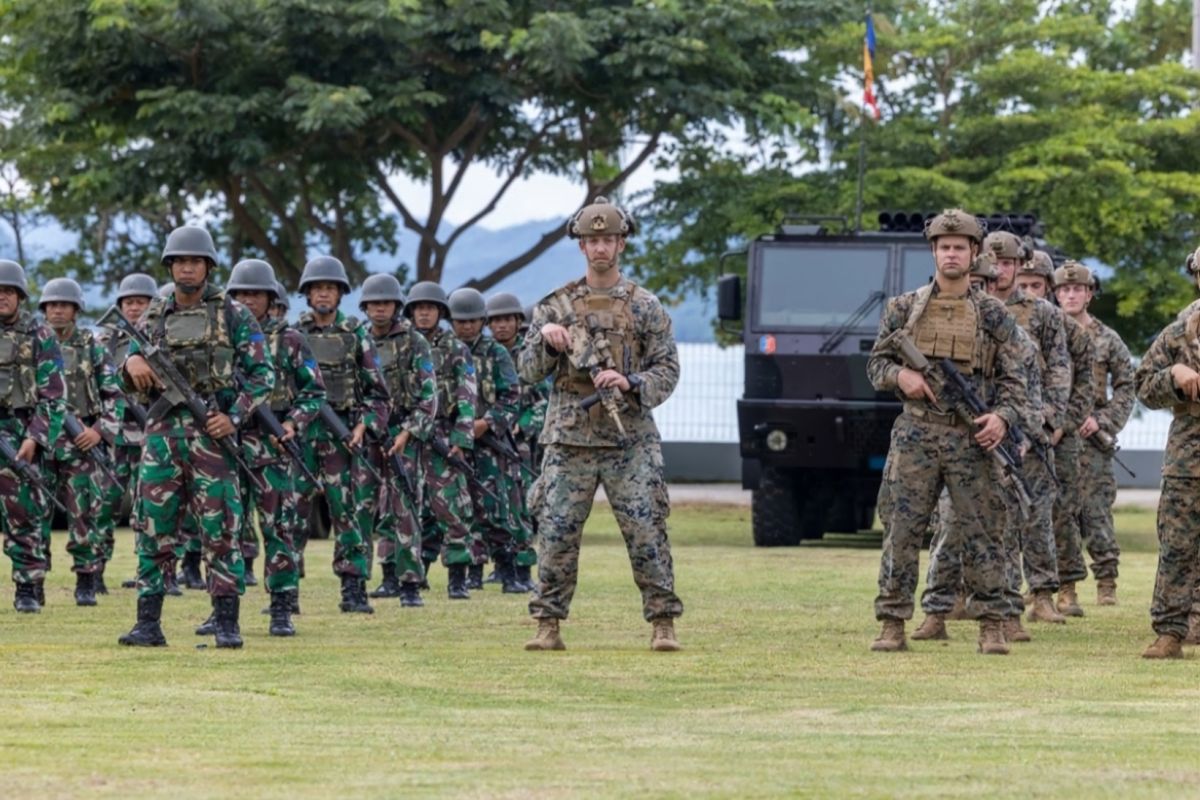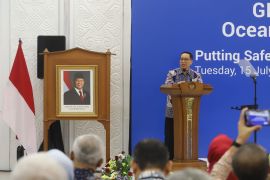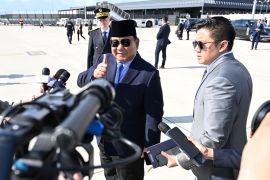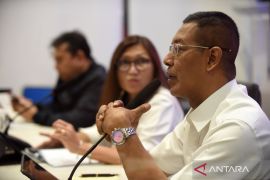This new status enables both countries to access numerous forms of strategic cooperation, including in the security sector. However, the new status did not fully resemble the reality of Indonesia-US strategic ties. Further enhancement is required, especially regarding the disruptive maritime security issue in the Indo-Pacific.
Several months before the CSP agreement, both countries arranged several defense agreements. Lockheed Martin —one of the prominent US arms corporations— agreed to sell 24 S-70 Blackhawk helicopters to the Indonesian Army. This agreement follows the F-15EX sale a couple of days before.
The CSP will foster Indonesia’s position within the US regional outlook, including the possibility of more advanced future arms transfers. Mutually beneficial for the US, the CSP, and previous arms agreements mean a more robust US presence in the Indo-Pacific. This maintains the US’ image as a regional player that supports the ASEAN members' regional dynamics position.
However, both parties should also consider a more comprehensive geopolitical engagement. The increasingly disruptive South China Sea issues, including the latest provocation by the Chinese Coast Guard (CCG) against the Philippines Coast Guard’s vessel, make maritime security more crucial. More maritime-centric efforts should be made by both parties in the upcoming year.
Until recently, arms procurement remained dominant in the Indonesia-US strategic ties. Research undertaken by Stockholm International of Peace Research Institute (SIPRI) in 2022 indicated that US arms exports to Indonesia between 1950 and 2022 had reached more than US$3.1 billion. Most are aviation assets, including airplanes, helicopters, and air-launched missiles.
During the period between 2012 and 2021, both countries had agreed on 21 arms procurement agreements, ranging from aircraft engines to air-to-air missiles.
On the other hand, a more salient defense partnership, especially in maritime security, is still not materialized enough. Currently, the technological transfer agreement between Indonesia and the US has resulted in minimal offsets, such as maintenance training.
In the Indonesian naval modernization plan, the US did not even come first in the policymakers’ minds, as they saw a deal with the United Kingdom and Italy as the priority in warship procurement. One of the reasons is the US’ reluctance to offer advanced naval technology to countries other than its formal allies.
Even after the relations upgraded to the level of comprehensive partnership in 2010 and a comprehensive strategic partnership in 2023, Indonesia-US relations still lack a substantive framework for maritime security cooperation.
In contrast with Vietnam, which has been involved in joint bilateral and minilateral capacity building in maritime security since 2010 and has a bilateral framework on naval cooperation with the US since 2007, or the Philippines, which repeatedly joins US minilateral maritime exercises, US maritime engagement with Indonesia remains minimal.
The most significant project, so far, is the development of the Indonesia-US Maritime Training Center in Batam that was constructed in 2021.
While the maritime sector in the Indo-Pacific has become increasingly important, given the increasing tension in the South China Sea throughout the last decade, the inter-military engagement between the two countries remains dominated by land components.
The most extensive and frequent joint Indonesia-US military exercise, Super Garuda Shield, is participated in mainly by both ground forces. Keris Marine Exercise (MAREX) 2023 is notably the first marine exercise between two countries, though it did not involve significant naval assets.
Other maritime commitments are also falling behind. According to IHS Jane’s Defense report, in 2016, Indonesian officials sought funding to develop a forward operation base (FOB) at Ranai, Natuna Besar Island.
The military base on this island has a significant strategic value, as it has become one of the outermost Indonesian military bases located in the South China Sea that will support Indonesia’s naval projection and deterrence.
Yet, no further talks had been held between the two countries regarding the project's continuity, including the latest bilateral meetings.
Apart from acknowledging the shared vision of the Indo-Pacific in the latest CSP joint statement, both parties only reached an agreement to start a new defense and security dialogue —an initiative that Vietnam and the Philippines regularly conduct.
Moreover, the Maritime Security Joint Work Plan —a US$5 million maritime security initiative pledged by the US to assist Indonesia’s maritime law enforcement— is still vaguely explained and might unlikely be implemented in the short term.
Indonesia and the US have reached strategic-level relations in various sectors, including defense and security. However, bilateral engagement in maritime security remains minimal as compared to other Southeast Asian countries, such as Vietnam and the Philippines.
As maritime issues become the core of the Indo-Pacific narrative, stronger maritime ties should be built to comprehensively elevate the Indonesia-US defense partnership. This approach is important to strengthen Indonesia’s naval capability and reinforces the US’ regional position as an inclusive strategic partner for every Southeast Asian state.
*) Alfin Febrian Basundoro, student of Master of Strategic Studies at the Australian National University, and served as an expert staff at the Indonesia-China High-level Dialogue and Cooperation Mechanism Secretariat under the Coordinating Ministry of Maritime Affairs and Investment.
The views and opinions expressed on this page are those of the author and do not necessarily reflect the official policy or position of ANTARA News Agency.
Related news: Indonesia, US Air Forces hold first bomber landing joint exercise
Related news: Super Garuda Shield 2022 exercise officially opened
Copyright © ANTARA 2024












